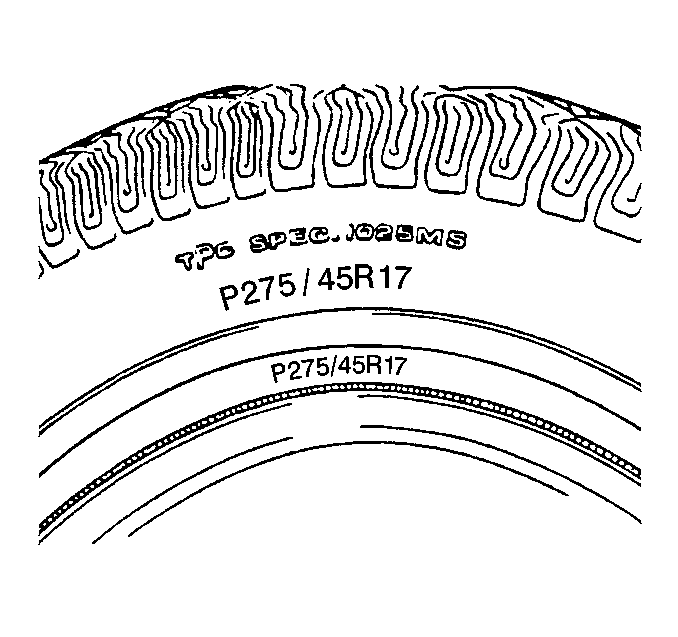
A Tire Performance Criteria
(TPC) specification number is molded into the sidewall near the tire size
of all the tires. This specification number assures that the tire meets GM's
performance standards for the following:
Usually, a specific TPC number is assigned to each tire size.
Caution: Do not mix different types of tires on the same vehicle such as radial,
bias, and bias-belted tires except in emergencies because vehicle handling
may be seriously affected and may result in loss of control and possible
serious injury.
Choose a tire of the same TPC specification number when selecting a
replacement tire. This ensures tires with the same size, load range and construction
as those originally provided on the vehicle. Any other tire size or construction
type can seriously affect the following driving conditions:
| • | Speedometer or odometer calibration |
| • | Vehicle ground clearance |
| • | Tire clearance to the body and chassis |
This restriction does not apply to the spare tire which is furnished
with the vehicle.
Install new tires in pairs on the same axle. If it is necessary to replace
only one tire, pair this tire with the existing tire having the most tread
in order to equalize braking traction.
Although tires may appear different in tread design, you may intermix
tires from different manufacturers with identical TPC specification numbers.
Replace tires under any of the following conditions:
| • | The tires are worn to the point where 1.6 mm (1/16 in)
or less tread remains, or the cord or fabric is showing. To help detect this,
tires have built-in tread wear indicators that appear between the tread grooves
when the tread is 1.6 mm (1/16 in) or less. Replace the tire
when the indicators appear in two or more adjacent grooves at three different
locations. |
| • | The tread or the sidewall is cracked, cut, or snagged deep enough
to expose the cord or fabric. |
| • | The tire has a bump, a bulge, or a split. Slight sidewall indentations
are normal and should not affect the ride. |
| • | The tire has a puncture, cut, or other damage that cannot be correctly
repaired because of the size or location of the damage. |

